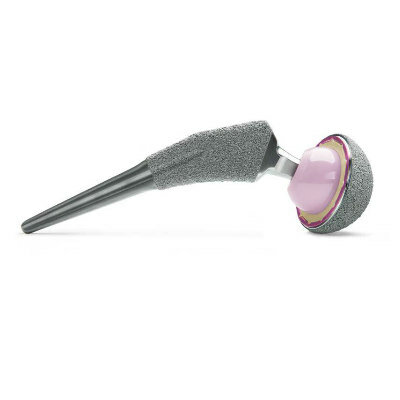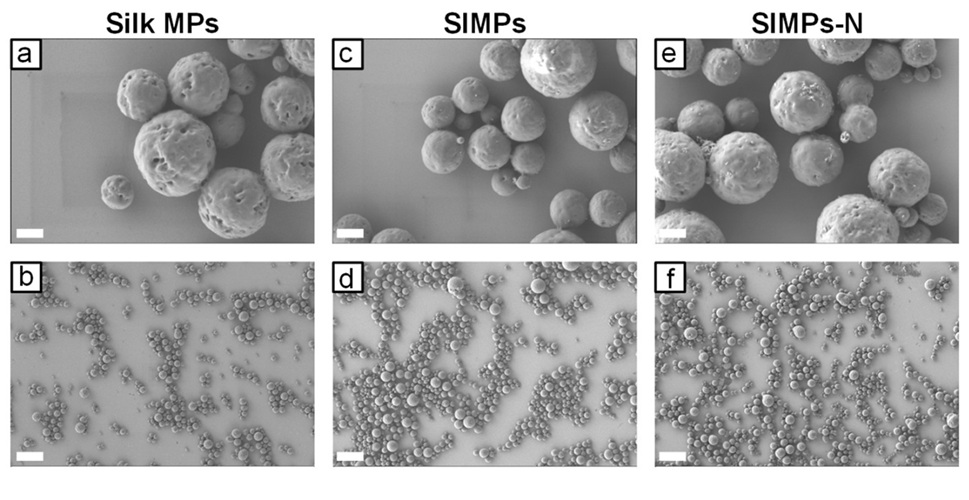New Class of Bioadhesives to Connect Human Tissues to Long-Term Medical Implants
|
By HospiMedica International staff writers Posted on 10 Apr 2025 |

Medical devices and human tissues differ significantly in their composition. While medical devices are primarily constructed from hard materials like metal and plastic, human tissue is soft and moist. This disparity creates a pressing need for adhesives that are soft and wet, similar to human tissues, to better bond medical devices with tissues. Improved adhesives designed to work more effectively with the body could have a profound impact on healthcare, enhancing patient outcomes and quality of life. Now, a new class of medical adhesives combining hydrogels with glue-like polymers could allow for the safe and reliable attachment of therapeutic devices to human tissues, such as pacemakers, insulin pumps, and artificial joints.
Hydrogels are materials made from water and polymer networks, which consist of large molecules. Examples of hydrogels include wound dressings, contact lenses, and absorbent materials in diapers. Hydrogel-based bioadhesives have been used primarily in emergency medicine for temporary applications like closing wounds, sealing tissues, and patching injuries. However, they are not ideal for long-term use, particularly for implantable devices, because they lack the strength and stability required to maintain adhesion over time while also matching the mechanical properties of human tissues. Researchers at Worcester Polytechnic Institute (WPI, Worcester, MA, USA) and Massachusetts General Hospital (Boston, MA, USA) are working together on a five-year project aimed at creating bioadhesives capable of providing strong, stable adhesion that meets the mechanical demands of biological tissues.
WPI's role involves developing bioadhesives with a two-layer system: a transparent solid hydrogel layer and a clear liquid adhesive layer. These bioadhesives will be tailored to match the mechanical properties of specific tissues and include polymers that can integrate with human tissues. The goal is to create hydrogel-polymer bioadhesives that deliver quick, strong, stable, and deep adhesion within the body. Additionally, researchers from WPI and Massachusetts General Hospital will collaborate on the development of a hydrogel heart patch loaded with medication aimed at treating atrial fibrillation, a condition characterized by irregular heartbeats.
“There are many potential applications for new bioadhesives,” said WPI researcher Jiawei Yang who is creating the bioadhesives. “They might be used to pair with electrodes that are implanted in the body to treat Parkinson’s disease or manage and treat heart failure. They also could be combined with therapeutic agents to heal damaged cartilage or generate healthy new tissues.”
Related Links:
WPI
Massachusetts General Hospital
Latest Surgical Techniques News
- Early TAVR Intervention Reduces Cardiovascular Events in Asymptomatic Aortic Stenosis Patients
- New Procedure Found Safe and Effective for Patients Undergoing Transcatheter Mitral Valve Replacement
- No-Touch Vein Harvesting Reduces Graft Failure Risk for Heart Bypass Patients
- DNA Origami Improves Imaging of Dense Pancreatic Tissue for Cancer Detection and Treatment
- Pioneering Sutureless Coronary Bypass Technology to Eliminate Open-Chest Procedures
- Intravascular Imaging for Guiding Stent Implantation Ensures Safer Stenting Procedures
- World's First AI Surgical Guidance Platform Allows Surgeons to Measure Success in Real-Time
- AI-Generated Synthetic Scarred Hearts Aid Atrial Fibrillation Treatment
- New Transcatheter Valve Found Safe and Effective for Treating Aortic Regurgitation
- Minimally Invasive Valve Repair Reduces Hospitalizations in Severe Tricuspid Regurgitation Patients
- Tiny Robotic Tools Powered by Magnetic Fields to Enable Minimally Invasive Brain Surgery
- Magnetic Tweezers Make Robotic Surgery Safer and More Precise
- AI-Powered Surgical Planning Tool Improves Pre-Op Planning
- Novel Sensing System Restores Missing Sense of Touch in Minimally Invasive Surgery
- Headset-Based AR Navigation System Improves EVD Placement
- Higher Electrode Density Improves Epilepsy Surgery by Pinpointing Where Seizures Begin
Channels
Critical Care
view channel
AI Interpretability Tool for Photographed ECG Images Offers Pixel-Level Precision
The electrocardiogram (ECG) is a crucial diagnostic tool in modern medicine, used to detect heart conditions such as arrhythmias and structural abnormalities. Every year, millions of ECGs are performed... Read more
AI-ECG Tools Can Identify Heart Muscle Weakness in Women Before Pregnancy
Each year, some mothers die from heart-related issues after childbirth, with many of these deaths being preventable. Screening for heart weakness before pregnancy could be crucial in identifying women... Read morePatient Care
view channel
Portable Biosensor Platform to Reduce Hospital-Acquired Infections
Approximately 4 million patients in the European Union acquire healthcare-associated infections (HAIs) or nosocomial infections each year, with around 37,000 deaths directly resulting from these infections,... Read moreFirst-Of-Its-Kind Portable Germicidal Light Technology Disinfects High-Touch Clinical Surfaces in Seconds
Reducing healthcare-acquired infections (HAIs) remains a pressing issue within global healthcare systems. In the United States alone, 1.7 million patients contract HAIs annually, leading to approximately... Read more
Surgical Capacity Optimization Solution Helps Hospitals Boost OR Utilization
An innovative solution has the capability to transform surgical capacity utilization by targeting the root cause of surgical block time inefficiencies. Fujitsu Limited’s (Tokyo, Japan) Surgical Capacity... Read more
Game-Changing Innovation in Surgical Instrument Sterilization Significantly Improves OR Throughput
A groundbreaking innovation enables hospitals to significantly improve instrument processing time and throughput in operating rooms (ORs) and sterile processing departments. Turbett Surgical, Inc.... Read moreHealth IT
view channel
Printable Molecule-Selective Nanoparticles Enable Mass Production of Wearable Biosensors
The future of medicine is likely to focus on the personalization of healthcare—understanding exactly what an individual requires and delivering the appropriate combination of nutrients, metabolites, and... Read more
Smartwatches Could Detect Congestive Heart Failure
Diagnosing congestive heart failure (CHF) typically requires expensive and time-consuming imaging techniques like echocardiography, also known as cardiac ultrasound. Previously, detecting CHF by analyzing... Read moreBusiness
view channel
Expanded Collaboration to Transform OR Technology Through AI and Automation
The expansion of an existing collaboration between three leading companies aims to develop artificial intelligence (AI)-driven solutions for smart operating rooms with sophisticated monitoring and automation.... Read more

















